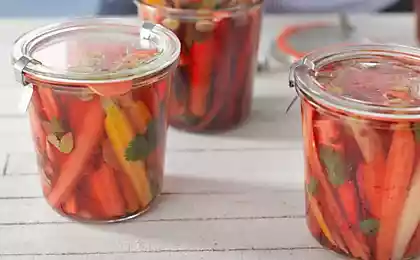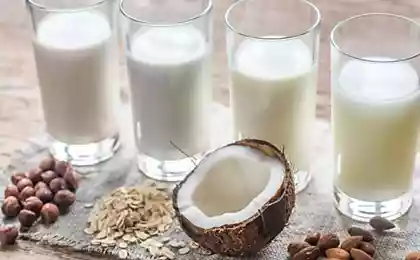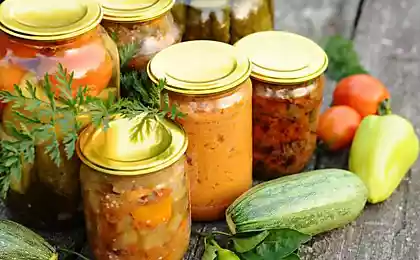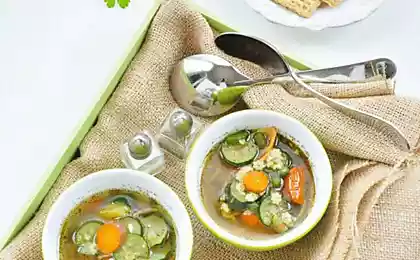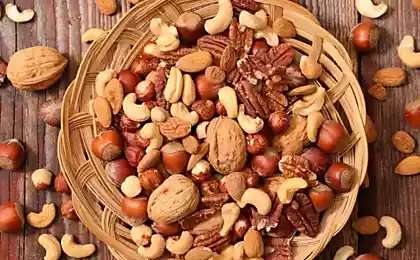577
12 natural treatments for your health
High temperature flu, terrible cough, malaise.... These are just a few "favorite" things because of the disease. Fortunately, in some cases, the disease can be easily prevented, and even if you are already sick, natural and herbal remedies can help to reduce the duration of illness and speed recovery. In the current winter situation, snow and cold weather recipes below is more than relevant.
1) Thyme for cough
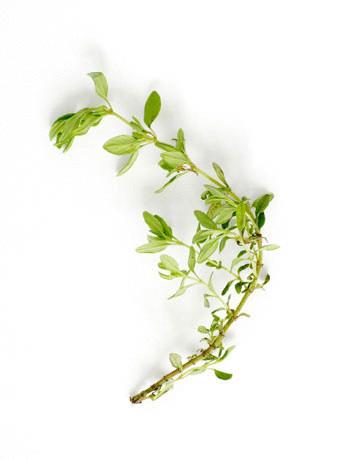
If you tortured coughing, and standard pharmaceutical syrups do not help, try tea with thyme. Add three tablespoons of dried thyme in half liter of boiling water. Let cool, then add one Cup (250 ml) of honey. Take one teaspoon as needed. The mixture can be stored in the refrigerator for up to three months.
2) Vitamin C for prevention

Diseases season stretches from October to March. A lot of people over this period of time to "catch" the virus 2-3 times per season.
To protect against viruses, strengthen your immune system natural sources of vitamin C.
Studies show that vitamins in pills are not so effective in the resistance to many diseases, as natural. In addition to vitamin C aides the immune system in protection from disease are Andrographis, zinc and elderberry extract, but vitamin C breaks all records. You might be surprised to know that oranges don't top the list of foods rich in vitamin C.
Below is a list of products and the amount of vitamin C per 100 grams of product:
briar 650 mg
red sweet pepper 250 mg
sea buckthorn, black currant 200 mg
horseradish, dill, parsley 120-130 mg
grapefruit 60 mg
orange and lemon 50 mg
3) Garlic for a stuffy nose
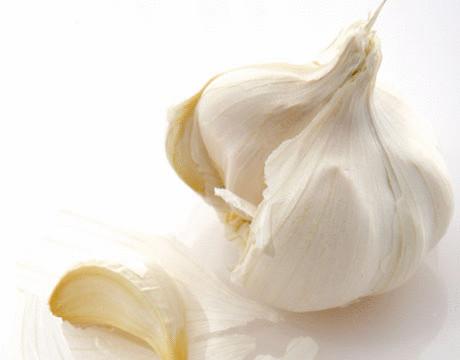
There is no better way to get rid of a stuffy nose than better to blow your nose, but garlic can help. Add the garlic every time in the food during treatment, if you get sick, or simply to strengthen the immune system, and it will help keep your nose from infection or virus.
4) Greens strengthen blood vessels
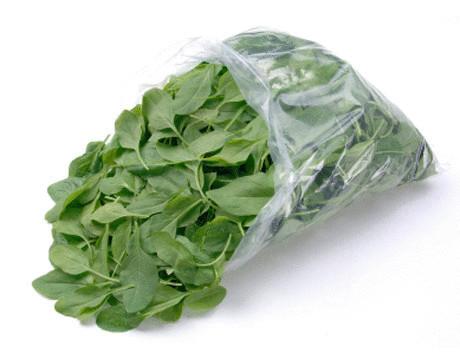
Dry indoor air combined with the constant sneezing can be the cause of bleeding from the nose. Daily portion of greens (200-300 g) may provide enough vitamin K to fortify sensitive capillaries and to promote rapid coagulation of the blood.
5) healthy herbal tea, honey and cinnamon
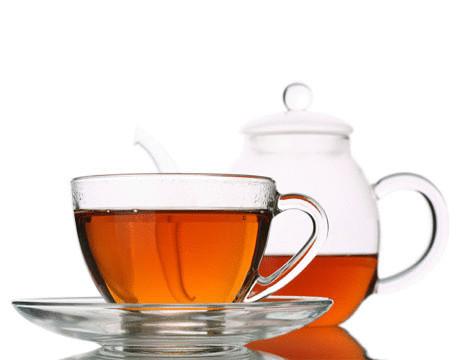
At the first sign of illness brew a hot herbal tea with lemon. The heat will help to stimulate the immune system, and various herbs can help in fighting infection.
Cinnamon is more than a natural stabilizer of blood sugar, it also is an effective antiviral agent, and antibiotic. If you feel the first symptoms, mix 1 teaspoon cinnamon with a teaspoon of honey and brew a spicy and very effective tea that helps to get rid of cough and to reduce fever (be careful, a large amount of herbs can have side effects).
6) Carrots against headache
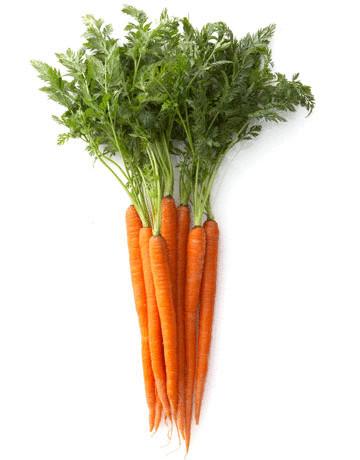
If the coming autumn-winter period you have frequent headaches, avoid this unpleasant ailment, a simple salad.
The phytonutrients in fresh products such as beta-carotene in carrots, can reduce inflammation in the blood vessels of the brain. Eating 400 grams of carrots a day helps some to reduce headaches by 70%.
7) Nuts for energy
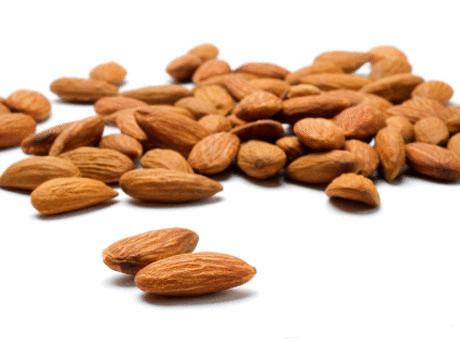
Watch the sunset, shortest day, from the window of his office, of course, unpleasant. And in this short day, you need to find the time to work, to laugh, to do training and, if possible, enough sleep. To all this it is enough energy to include in your diet unsalted nuts, such as almonds. Raisins and dried apricots are also a good option. And bonus – nuts are a great source of vitamin E, a powerful antioxidant.
8) Lavender from anxiety
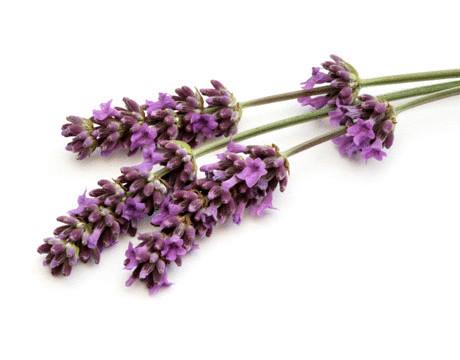
Christmas shopping, festive purchases, family finances. Winter holidays can bring a lot of stress. Come to the aid of lavender. Apply a little lavender oil on your pulse points – the arteries in the wrists, neck and feet – and you will immediately feel the relaxation.
9) Pineapple to improve digestion
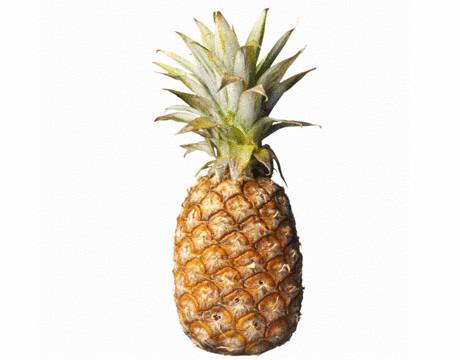
To eat well during the holidays it is common practice for many of us. And gastrointestinal tract may loudly complain about all the bad things that can bring dense meal.
To get rid of the discomfort, add to your diet a glass of fresh pineapple juice. It will accelerate the protein breakdown and help reduce unpleasant consequences.
10) Tomatoes with burns
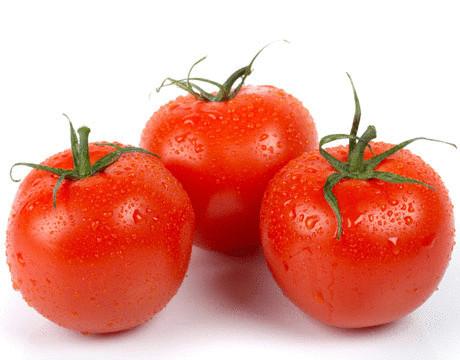
Fireworks or sparklers can leave unpleasant memories in the form of burns. Even for minor burns apply a sliced tomato to burn the place and let the juice dry completely. Tomatoes have the largest number of natural lycopene, an antioxidant that has anti-inflammatory action.
11) Celery for better sleep
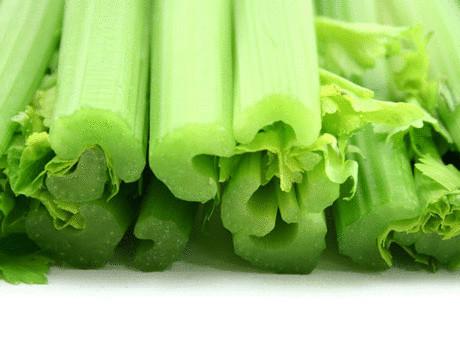
We have already mentioned the stress associated with the winter period. If all non-pharmacological tools had no effect and restful sleep you left, try some fresh celery at night. It contains powerful natural sedative component – ftale.
12) Walnuts for dry skin
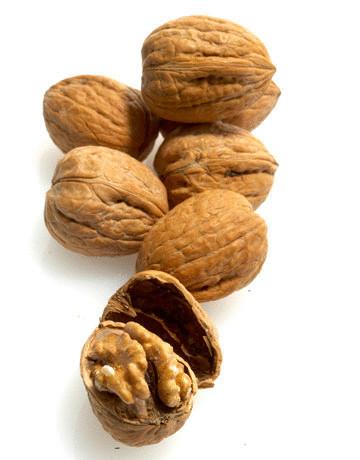
Winter cold wind does not spare our delicate skin. Eat 30 grams of walnuts, and after two weeks you will see the result – natural omega-3 oils will not only save your energy but will also improve the elasticity of your skin.
Source: /users/104
1) Thyme for cough

If you tortured coughing, and standard pharmaceutical syrups do not help, try tea with thyme. Add three tablespoons of dried thyme in half liter of boiling water. Let cool, then add one Cup (250 ml) of honey. Take one teaspoon as needed. The mixture can be stored in the refrigerator for up to three months.
2) Vitamin C for prevention

Diseases season stretches from October to March. A lot of people over this period of time to "catch" the virus 2-3 times per season.
To protect against viruses, strengthen your immune system natural sources of vitamin C.
Studies show that vitamins in pills are not so effective in the resistance to many diseases, as natural. In addition to vitamin C aides the immune system in protection from disease are Andrographis, zinc and elderberry extract, but vitamin C breaks all records. You might be surprised to know that oranges don't top the list of foods rich in vitamin C.
Below is a list of products and the amount of vitamin C per 100 grams of product:
briar 650 mg
red sweet pepper 250 mg
sea buckthorn, black currant 200 mg
horseradish, dill, parsley 120-130 mg
grapefruit 60 mg
orange and lemon 50 mg
3) Garlic for a stuffy nose

There is no better way to get rid of a stuffy nose than better to blow your nose, but garlic can help. Add the garlic every time in the food during treatment, if you get sick, or simply to strengthen the immune system, and it will help keep your nose from infection or virus.
4) Greens strengthen blood vessels

Dry indoor air combined with the constant sneezing can be the cause of bleeding from the nose. Daily portion of greens (200-300 g) may provide enough vitamin K to fortify sensitive capillaries and to promote rapid coagulation of the blood.
5) healthy herbal tea, honey and cinnamon

At the first sign of illness brew a hot herbal tea with lemon. The heat will help to stimulate the immune system, and various herbs can help in fighting infection.
Cinnamon is more than a natural stabilizer of blood sugar, it also is an effective antiviral agent, and antibiotic. If you feel the first symptoms, mix 1 teaspoon cinnamon with a teaspoon of honey and brew a spicy and very effective tea that helps to get rid of cough and to reduce fever (be careful, a large amount of herbs can have side effects).
6) Carrots against headache

If the coming autumn-winter period you have frequent headaches, avoid this unpleasant ailment, a simple salad.
The phytonutrients in fresh products such as beta-carotene in carrots, can reduce inflammation in the blood vessels of the brain. Eating 400 grams of carrots a day helps some to reduce headaches by 70%.
7) Nuts for energy

Watch the sunset, shortest day, from the window of his office, of course, unpleasant. And in this short day, you need to find the time to work, to laugh, to do training and, if possible, enough sleep. To all this it is enough energy to include in your diet unsalted nuts, such as almonds. Raisins and dried apricots are also a good option. And bonus – nuts are a great source of vitamin E, a powerful antioxidant.
8) Lavender from anxiety

Christmas shopping, festive purchases, family finances. Winter holidays can bring a lot of stress. Come to the aid of lavender. Apply a little lavender oil on your pulse points – the arteries in the wrists, neck and feet – and you will immediately feel the relaxation.
9) Pineapple to improve digestion

To eat well during the holidays it is common practice for many of us. And gastrointestinal tract may loudly complain about all the bad things that can bring dense meal.
To get rid of the discomfort, add to your diet a glass of fresh pineapple juice. It will accelerate the protein breakdown and help reduce unpleasant consequences.
10) Tomatoes with burns

Fireworks or sparklers can leave unpleasant memories in the form of burns. Even for minor burns apply a sliced tomato to burn the place and let the juice dry completely. Tomatoes have the largest number of natural lycopene, an antioxidant that has anti-inflammatory action.
11) Celery for better sleep

We have already mentioned the stress associated with the winter period. If all non-pharmacological tools had no effect and restful sleep you left, try some fresh celery at night. It contains powerful natural sedative component – ftale.
12) Walnuts for dry skin

Winter cold wind does not spare our delicate skin. Eat 30 grams of walnuts, and after two weeks you will see the result – natural omega-3 oils will not only save your energy but will also improve the elasticity of your skin.
Source: /users/104



